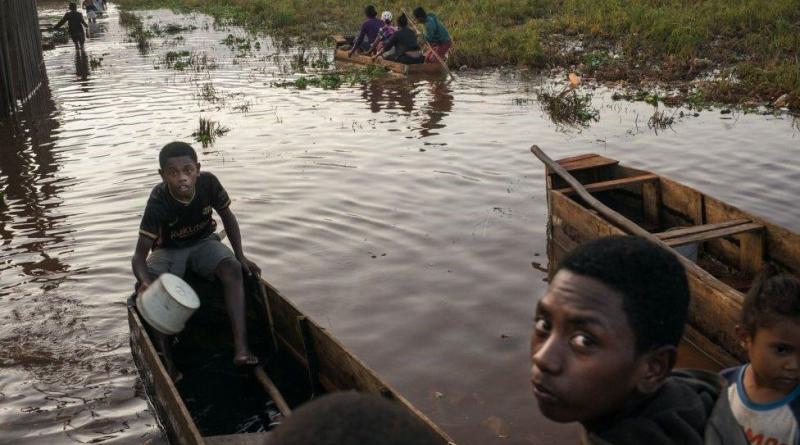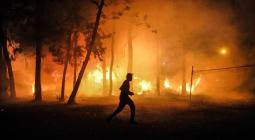Southern Africa storms fuelled by climate change - study

Climate change fuelled heavier rainfall during a series of storms that battered southern Africa earlier this year, scientists say.
Analysis from the World Weather Attribution group also showed that such extreme rainfall was more common now. The results of this study show that the damage inflicted by storms in the region was exacerbated by global warming, researchers said.
The region was hit by three cyclones and two tropical storms in six weeks. In total more than one million people were affected by extreme rainfall and floods in the region, with 230 reported deaths, World Weather Attribution (WWA) said.
However, the scientists say they cannot directly link the frequency of the storms to climate change due to a lack of long-term data. The devastating storms began in January when storm Ana caused widespread damage in Madagascar, Mozambique and Malawi. Dozens were killed with tens of thousands cut off from assistance as roads and bridges had been washed away.
In Malawi, the president declared a state of emergency, and the roads were so severely affected that relatives of the deceased had to carry the bodies to burials. This was followed in quick succession by Batsirai, Dumako, Emnati, and Gombe.
In the study the scientists analyzed weather patterns today compared to the past, however, they say "the precise contribution of climate change to the event could not be quantified, due to the absence of comprehensive historical records of rainfall in the region".
They say that just four of the 23 weather stations in affected areas of Mozambique had data going back to 1981, while neither Madagascar no Malawi had any weather stations with suitable data for the study.
One of the scientists involved in the study confirmed to the BBC that climate change was making the storms worse.
"The rainfall associated with such storms has become more likely and more intense," Dr Friederike Otto from Imperial College London said. "What we can say for sure is, the damages of such storms have become worse," Dr. Otto continued.
The scientists behind the study had strong words for global leaders, urging them to act to curb climate change.
"Again we are seeing how the people with the least responsibility for climate change are bearing the brunt of the impacts. Rich countries should honor their commitments and increase much-needed funding for adaptation, and for compensating the victims of extreme events driven by climate change," Dr. Otto said.
Another scientist called for the strengthening of scientific resources in Africa, to better record the impact of climate change in the region. Dr Izidine Pinto from the University of Cape Town said such a change would "help us better understand extreme weather events fuelled by climate change, to prepare vulnerable people and infrastructure to better cope with them".






